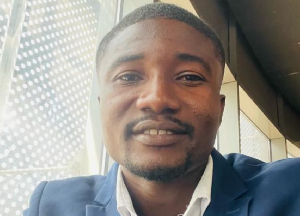Wa, Sept. 16, GNA - The Ministry of Women's and Children's Affairs and relevant agencies should conduct an in-depth research into the impact of the advocacy, education and sensitisation programmes employed to eradicate Female Genital Mutilation (FGM) in northern Ghana. Mr Godfred Bayong Tangu, Wa District Chief Executive, who made the suggestion, said the results of such an exercise would guide them to ascertain the acceptable levels of these programmes in the communities and the extent to which the practice still prevails.
He was speaking at a day's workshop for civil society groups in the Wa District on the eradication of FGM in northern Ghana under the theme: " Protecting the dignity of women."
It was organised by the Centre for Human Rights Education and Advocacy, an NGO and sponsored by the German Embassy.
The participants were told the harmful effects of FGM on females, the enforcement of laws abolishing FGM and building approaches for eradicating the practice in the districts.
Mr Tangu said if the research gives positive results the campaigns could be stepped up in that direction and where little progress had been made the advocacy programmes could be examined and repackaged. More than three-quarters of girls in the three regions are believed to have undergone the practice with all communities in the Sissala District of the Upper West Region practising it.
The Wa DCE said some people see FGM as a traditional rite while others consider it as a religion and since traditions are often difficult to stop there is the need to concentrate on changing people's attitudes instead of enforcing Laws.
Mr Issah Mahmudu, Executive Director of the Centre for Human Rights Education and Advocacy, said the practice is deeply rooted in the values and belief systems of these societies.
To eradicate it from the society, he said, there is the need for a greater determination on the part of district assemblies, traditional rulers and all stakeholders to outlaw the practice in their communities.
Regional News of Wednesday, 17 September 2003
Source: GNA
Workshop on eradication of F.G.M held at Wa
Entertainment











